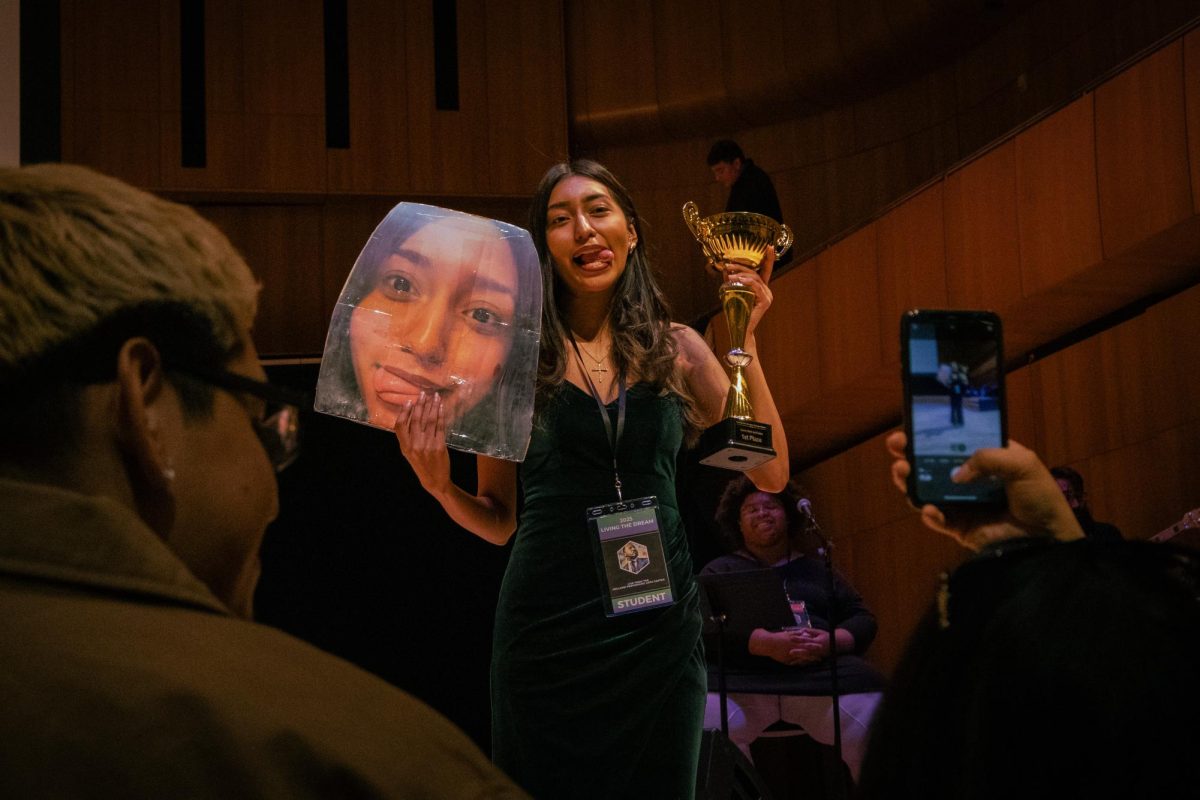English teacher Ilene Sigman has come up with her own house point system inspired by the book series Harry Potter. She does this with her AP Language and junior English classes.
The classes are separated into groups and compete to earn the most points. The winning team is exempt from the final. House points can be earned a variety of ways, like participating in school events, being involved in class, etc.
“I was looking for a way to increase engagement in my classroom or a way to invite students to get used to the school environment again, cause this was coming out of the COVID lockdown since the following year,” Sigman said. “A lot of students were very apathetic, low energy, didn’t really want to engage as much because of the previous year.”
Though COVID was what sparked the idea, Sigman’s goals for students are what fuel it.
“Anything that I can do to get kids up moving, doing things, getting them involved is appreciated,” Sigman said. “The house point system is also a means of encouraging kids to do activities or practices, such as grammar, that are important for their growth academically, but I can’t grade necessarily because it’s not part of our larger curriculum.”
This system has had an impact on student behavior in the classroom as well as outside of it.
“Before, I would basically pull teeth in order to get answers in the classroom,” Sigman said. “It has had really positive effects on students’ use of their time. They’re meeting those deadlines, which account for house points as well, and attendance. If they’re aware that their other teammates aren’t attending as much as they’re supposed to, some of them are now reaching out to them like, ‘Hey, get your butt to school,’ which, ultimately benefits that student the more time they are in the classroom.”
Students who participate have felt its impacts as well.
“I feel like I’m more attentive, or pay attention more because if she asks a question you get the chance to answer it, and you get a conversation out of it,” said junior Breanna Doyle.
This system has impacted students’ involvement in school activities and allowed them to explore their creativity.
“For the spirit weeks, we get house points, and I go above and beyond,” Doyle said. “I wore four jerseys one day.”
Every month, Sigman gives students a prompt, and they can write a paper answering it however they feel like for points.
“I like the research essay,” said junior Saul Munoz Macias. “I know that sounds nerdy but the subject I picked I was really passionate about, and I had some fun researching the topic.”
Sigman faces challenges being the one in charge of this.
“I give them monthly prompts that are ultimately fun to read because students get to choose what that is, but it also means that’s more on my plate to grade or attach points to, but it’s something that I don’t mind doing,” Sigman said.
Since this system is a group thing, it has taught students more about teamwork and allowed them to connect with their peers.
“There’s a community, even though there’s competition,” Munoz Macias said. “Sure we’re competing against each other, but I feel like we’ve gotten to know each other like, ‘That’s her from blue team’ or ‘That’s them from green team.’ We also get to really know our group-mates better.”
This system isn’t perfect and has its flaws, but Sigman continues to make changes to better it.
“There’s still quite a bit with the system that I’m still tweaking because I’ve tried different things like wagering points, which, never doing that again,” Sigman said. “I want to try next semester a survival-type game where they get to vote people off their team.”
Sigman plans to keep developing this to continue to use in the future.
“I want to achieve my own little pocket of success that will hopefully lead out into other areas in the school,” Sigman said.


